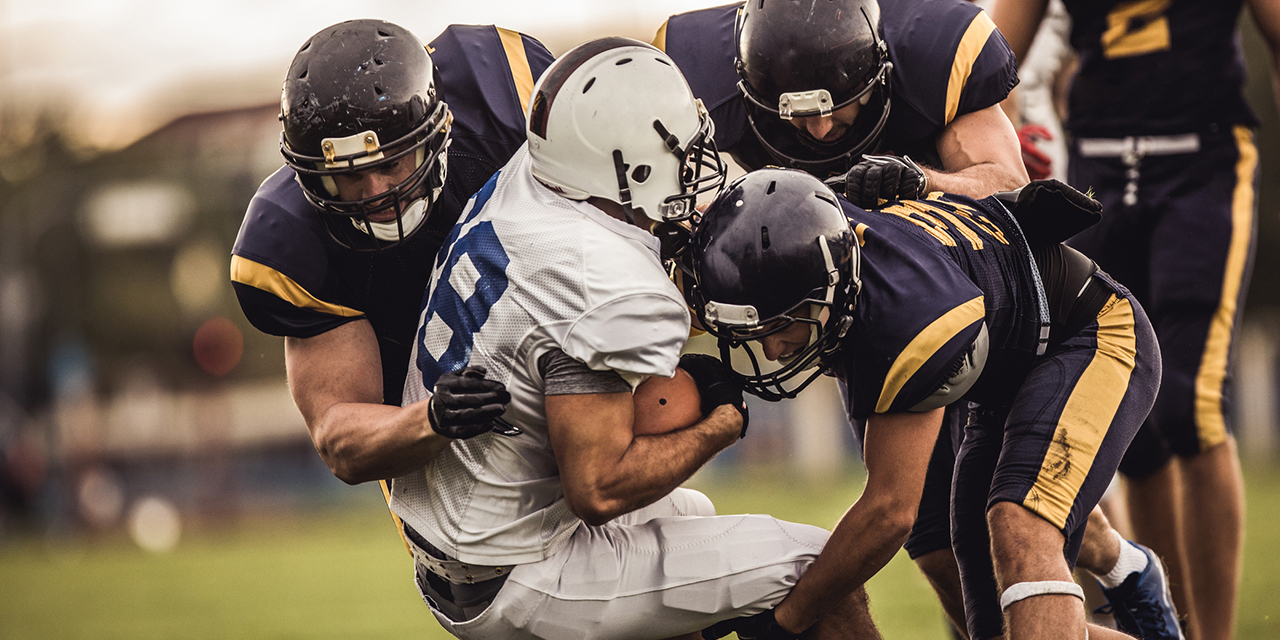
Football is officially back in season. One buzzword we tend to hear a lot around this time of year is “concussion”. Concussions are serious injuries, and if you or your child experiences one, it’s essential to seek medical attention immediately.
Dr. Minsoo Kang is a board-certified neurologist with specialized certification in Headache Medicine from the United Council for Neurologic Subspecialties. While symptoms of a head injury may appear mild at first, they can lead to long-term complications. Here’s what Dr. Kang wants families to understand:
“Concussion is a mild traumatic brain injury caused by a direct blow to the head, neck, or body that occurs in accidents or sports and exercise-related activities. Symptoms and signs may present immediately, or evolve over minutes or hours, and commonly resolve within days, but may be prolonged. For children and teens, this can lead to behavioral changes and have an effect as they get older by delaying mental development or increasing their risk for chronic health problems. Kids have shown changes in sleep habits, increased irritability, needing more help than usual, sudden difficulty remembering or holding their concentration, speaking more slowly, and appearing clumsier or having delayed reaction times. They also can suffer from severe headaches, nausea, vomiting, dizziness, and gait disturbance.
While most concussions are mild and do not require hospitalization, we must still exercise caution so the brain can recover. With appropriate management and guidance from a healthcare professional, most concussions typically resolve within one month. At Trinity Neurology & Headache Center, we offer a physician-led concussion program that delivers comprehensive, multidisciplinary care. Our services include thorough evaluations, a broad spectrum of treatment options, and coordinated care with specialists from diverse medical fields.”
Minsoo Kang, MD
Neurology, Trinity Neurology & Headache Center
The sport with the highest rate of concussions among high school boys is tackle football, causing 63% of concussions. The second was girls’ soccer, then boys’ lacrosse, ice hockey, and wrestling. 2 out of 3 concussions in adolescents occur from athletes colliding.
Unlike high school and adolescent athletes, children who participate in youth sports commonly experience concussions by head to ground contact.
7 out of 10 emergency room visits are for sports-related concussions for children 17 and under. While boys visit the ER for concussions more than girls, girls were more likely to experience concussions when playing the same contact sport, report long-lasting and severe symptoms than boys, and experienced worse mental health outcomes.
Children and adolescents suffering from concussions report headaches and dizziness as the most common symptoms. Bruising and nausea or vomiting were also common, and lethargy, blurred vision, and sensitivity to noise and light were also reported.
Concussions are still not fully understood and can have lifelong consequences for children and teens. Due to the nature of this type of unseen injury, it can be challenging to determine if someone is experiencing one. Watching for symptoms is the best thing you can do after witnessing someone suffer a blow to the head.
If you think a concussion may be present, it’s critical that the person stop doing any strenuous activity and be evaluated by a medical professional. The physician may recommend taking time off from any exercise and even limiting screen time as it can worsen symptoms during recovery.
The Trinity Neurology & Headache Center offers advanced concussion care to athletes of all levels. As concussion experts, our specialists will help you make a gradual and safe return to daily activities by creating personalized treatment plans that work at your own pace.
Schedule an Appointment with our Headache Specialists
Call (716) 297-8709